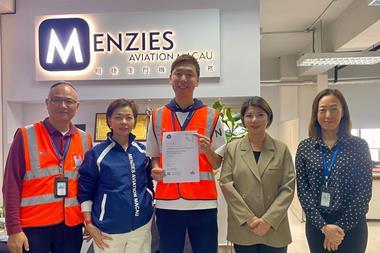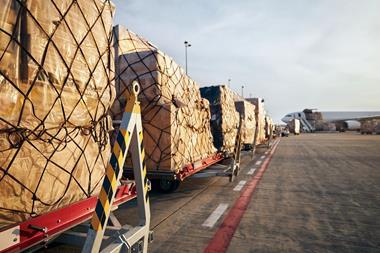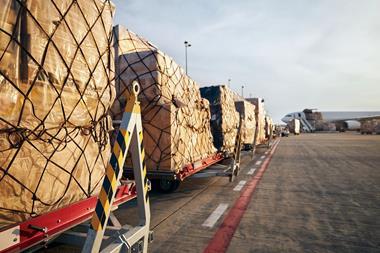Transform today: shape tomorrow, that is the theme of IATA’s 11th World Cargo Symposium (WCS), which takes place in Abu Dhabi, March 14-16.
After the success of Berlin in 2016, IATA wants to move the air cargo industry “from talk to action”.
Three days of debate at the Abu Dhabi National Exhibition Centre (ADNEC) venue will cover such topics as dangerous goods, cargo security, digital transformation, operations and handling, pharma, e-commerce and perishables, to name but a few.
The full roadmap of plenary sessions, subject tracks, receptions and the gala dinner can be accessed online at www.iata.org/events/wcs/Pages/index.aspx.
IATA’s global head of cargo, Glyn Hughes, said that Abu Dhabi will continue the successful formula of last year in Berlin, but with some “different and exciting” additions to the programme.
“We have the opening plenary which addresses the meaty issues and what the industry is facing from a macro global perspective. This is followed up with content specific tracks with parallel executive meetings.”
One of the new items is the Horizon Innovation Forum, on the Monday. Said Hughes: “The world of technology is changing our day to day lives.
“How much of that do we feel could ultimately find its way into the air cargo industry and should we accelerate its entry into air cargo?”
Computers with artificial intelligence (AI), the ability to constantly learn how to do things more efficiently, is one aspect of innovation in airfreight.
There are two new tracks: cargo facility of the future and fighting back to profitability.
The first will look at AI. Hughes cites Amazon’s Alexa, which can control household lighting/heating and other tasks: “If we take that technology into the warehouse, can we tell Alexa that a truck driver is 15 minutes away and to ensure that his freight is ready and waiting at the collection bay?”
The profitability track will focus on how air cargo can put the correct cost structure in place to handle the growing amount of high value, handling-sensitive and time-critical airfreight.
Amazon’s use of leased freighters in the US will come up in the e-commerce track, and the prospects for air cargo in a Donald Trump presidency will be considered in the first plenary session.
Said Hughes: “By March, either we would have seen some protectionist measures already being implemented or it will be evident that it is going to be bluster and no thunder.
“President Obama introduced quite a large number of aviation regulations, and was not necessarily seen as pro-aviation. However, Trump may not be in favour of open skies.”
WCS 2017 also includes the Future of Air Cargo Executives programme (FACES) which invests in people, to attract and develop young talent.
In the last WCS plenary, the innovation awards will feature three finalists who will present their idea, product or service. The audience will then vote and the prize winner will receive $20,000.
Hughes believes that electronic-air waybill penetration will top 50% by March: “That in itself proves to the industry that we can get things done.
“Let’s talk about collaboration between shippers, forwarders, airlines and ground handlers, coming up with solutions aligned to the modern economy.
“That will be the spirit coming out of Abu Dhabi, to go off and deliver that.”










